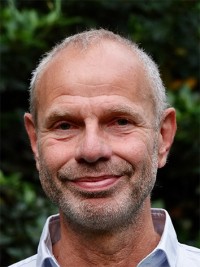Avondlezing door prof.dr.ing. Jan Willem Erisman georganiseerd door de Chemische Kring Midden Nederland.
Stikstof: de kanarie in de kolenmijn
Samenvatting
Nederland heeft een zeer intensief landgebruik met veel mensen, dieren, industrie, transport en allerlei andere activiteiten bij elkaar. Dat maakt dat de leefomgevingkwaliteit sterk onder druk staat en dat er grote opgaven zijn als het gaat om klimaat, biodiversiteit, bodem, lucht en waterkwaliteit. Door de grote diversiteit binnen het land is een gebiedsgerichte opgave van belang.
De stikstofproblematiek is al meer dan 5 jaar in het nieuws en een oplossing lijkt nog niet nabij. Stikstof is de kanarie in de kolenmijn. Het vraagstuk gaat over de sterk gegroeide landbouwproducten die ver buiten de grenzen van de leefomgevingkwaliteit is getreden, waar natuurkwaliteit er een van is, naast water, lucht, bodem, klimaat, zoönosen, geur en landschapskwalitiet. Het is duidelijk dat er veel ontwikkeling nodig is om de gebieden, de landbouw en natuur in de toekomst duurzaam te ontwikkelen. Daar zijn maatregelen voor nodig.
In deze lezing zal dieper ingegaan worden op de achtergronden van de problematiek en potentiële oplossingen.
Curriculum vitae: Prof.dr.ing. Jan Willem Erisman is professor Enviromental Sustainability within the Institute of Environmental Sciences of Leiden University. He is member of the Health Council of the Netherlands (Gezondheidsraad) and a member of the Council of Animal Affairs (Raad voor Dierenaangelegenheden). Jan Willem obtained his PhD on Atmospheric deposition of acidifying compounds in the Netherlands in 1992 at the University of Utrecht in the Netherlands. In 2009 he was appointed as extraordinary professor on Integrated Nitrogen Studies at VU university Amsterdam.
Prof.dr.ing. Jan Willem Erisman is professor Enviromental Sustainability within the Institute of Environmental Sciences of Leiden University. He is member of the Health Council of the Netherlands (Gezondheidsraad) and a member of the Council of Animal Affairs (Raad voor Dierenaangelegenheden). Jan Willem obtained his PhD on Atmospheric deposition of acidifying compounds in the Netherlands in 1992 at the University of Utrecht in the Netherlands. In 2009 he was appointed as extraordinary professor on Integrated Nitrogen Studies at VU university Amsterdam.
It is Jan Willem’s ambition to contribute to sustainable development of our society. He has done this through developing a career in science, management and commercialisation of technology, all ingredients necessary to fulfil this ambition. His work starts with a system view and he uses participatory approaches to work towards practical solutions for pressing societal issues such as sustainable agriculture, food and health, energy and nature conservation. His research has been focused on environmental sciences, climate, biodiversity, nature conservation, energy transition, food production and sustainability of resource use and circularity. He acted independently to help find and implement solutions for sustainability issues using science and fact based integral multidisciplinary approaches.
The nitrogen issue has always had his special attention because it serves as an example for tackling all sustainability problems in view of the systems approach needed to balance all actors, media, effects and primary human motives (energy, food, nature and health). In addition, it has many substantive issues that make the problems interesting in themselves, both multi-, trans- and mono disciplinary.
Jan Willem played an important role in advising universities, governments, industry, media and citizens about the nitrogen issues and potential solutions.
Jan Willem has initiated several (inter)national projects, committees and organisations that work on the issue of nitrogen in relation to food and energy production and the environment. He was treasurer of the International Geosphere Biosphere Program (IGBP) that coordinated large global earth science research programs. Until 2020 he was the CEO of the Louis Bolk Institute, a knowledge based institute working towards sustainable agriculture, nutrition and health.
Introducé(e)s zijn van harte welkom.
Graag vooraf bericht als u verwacht te komen.
Stuur daartoe een mail naar chemdorpjwj@hotmail.com

